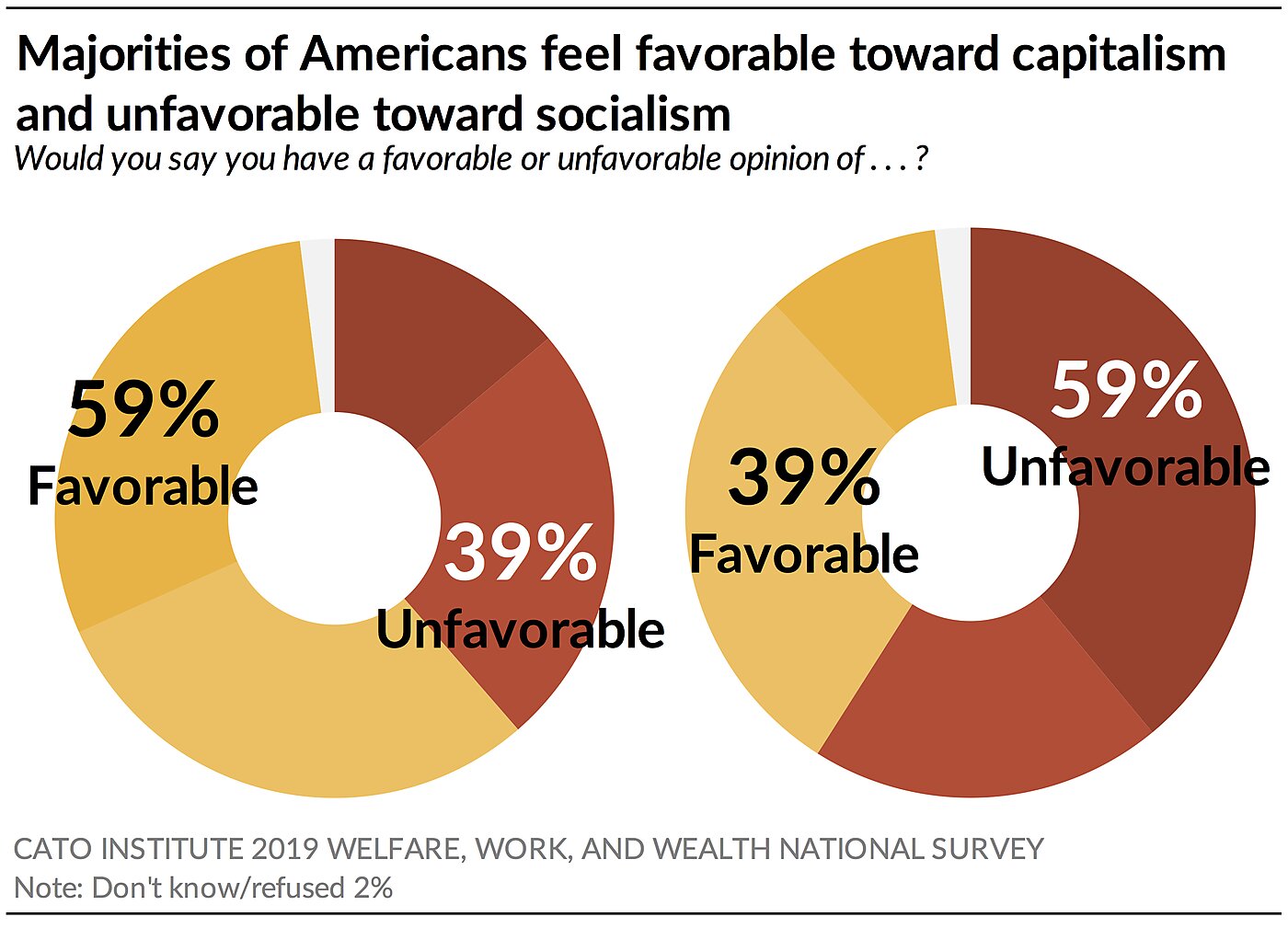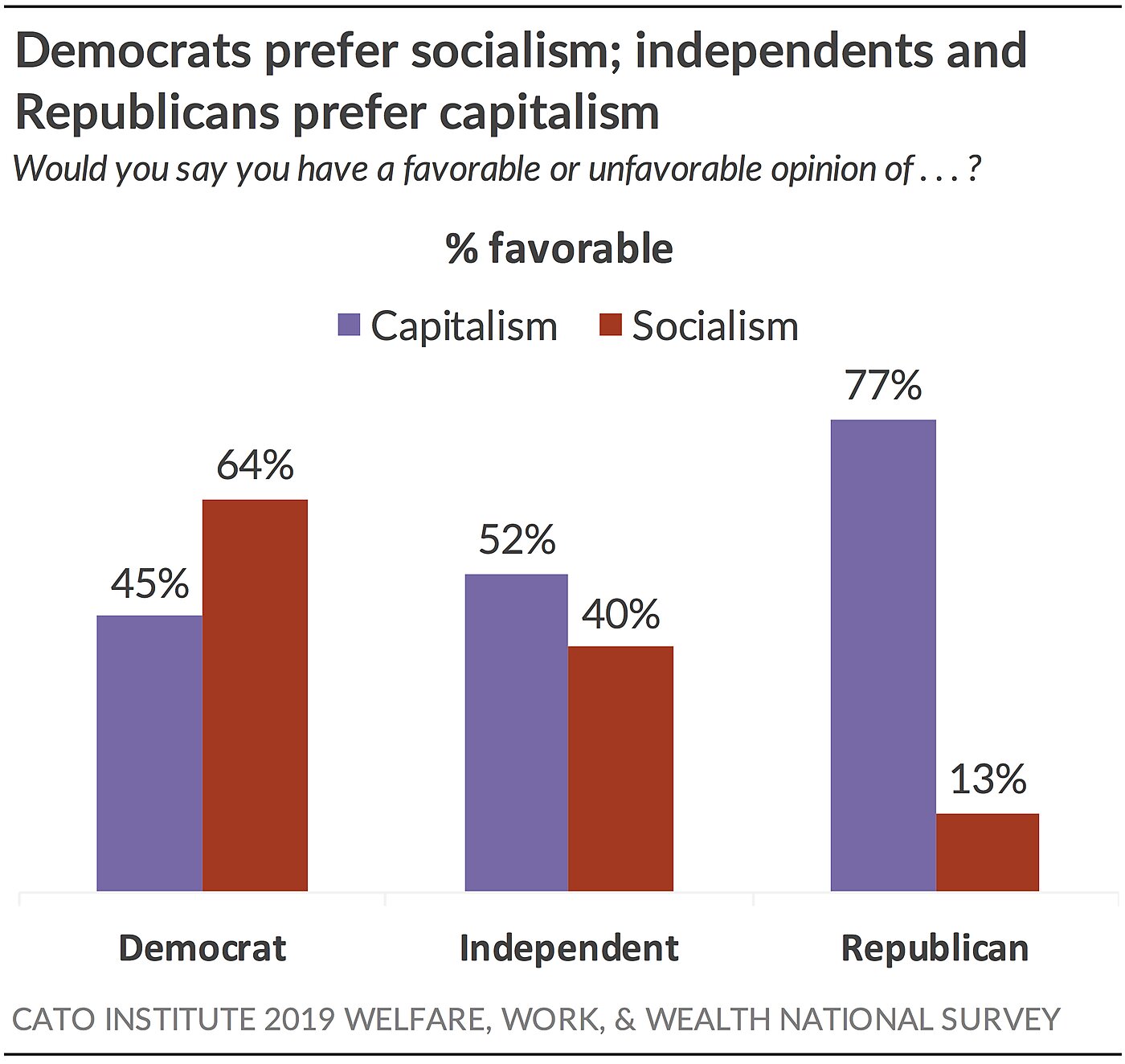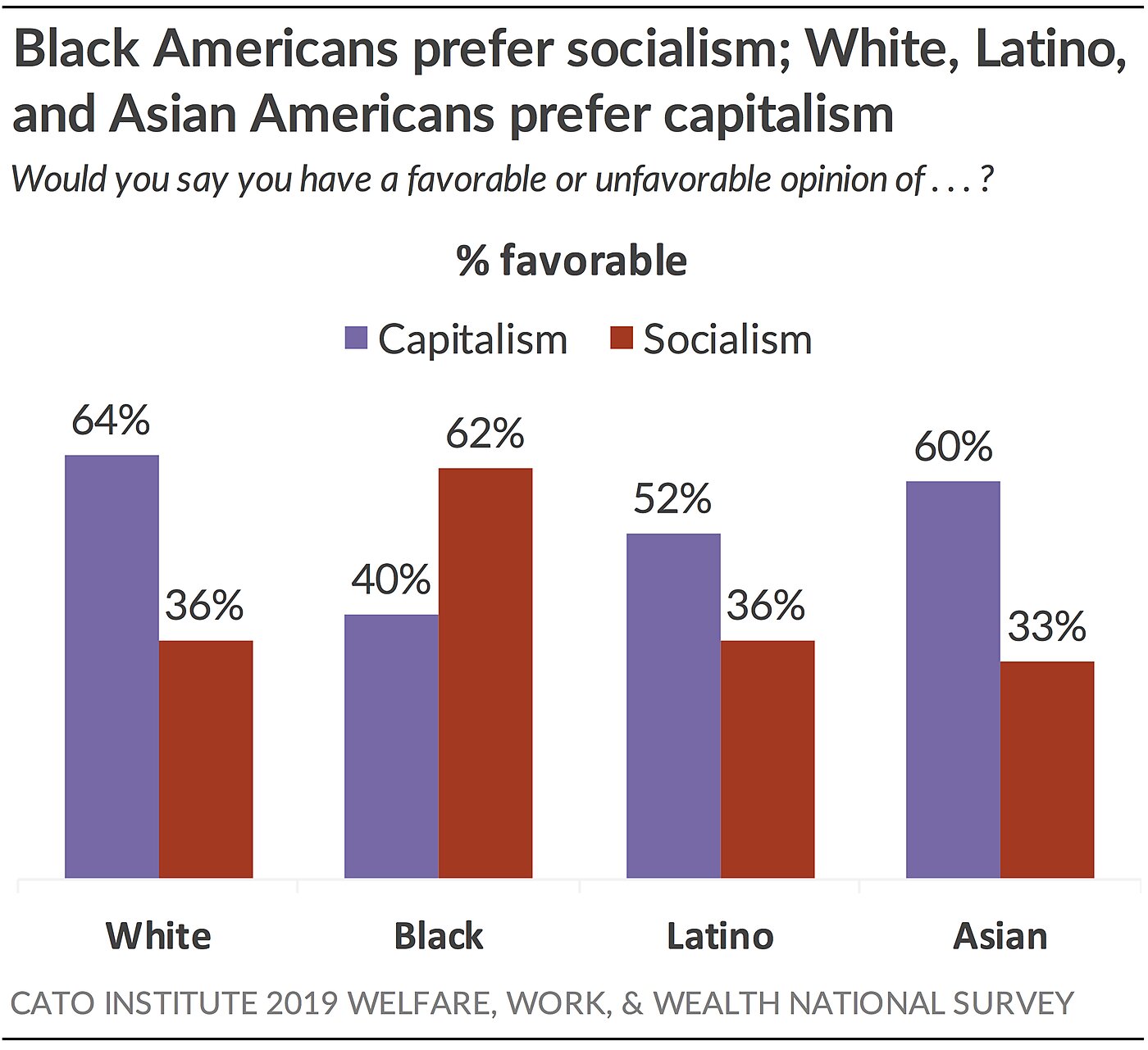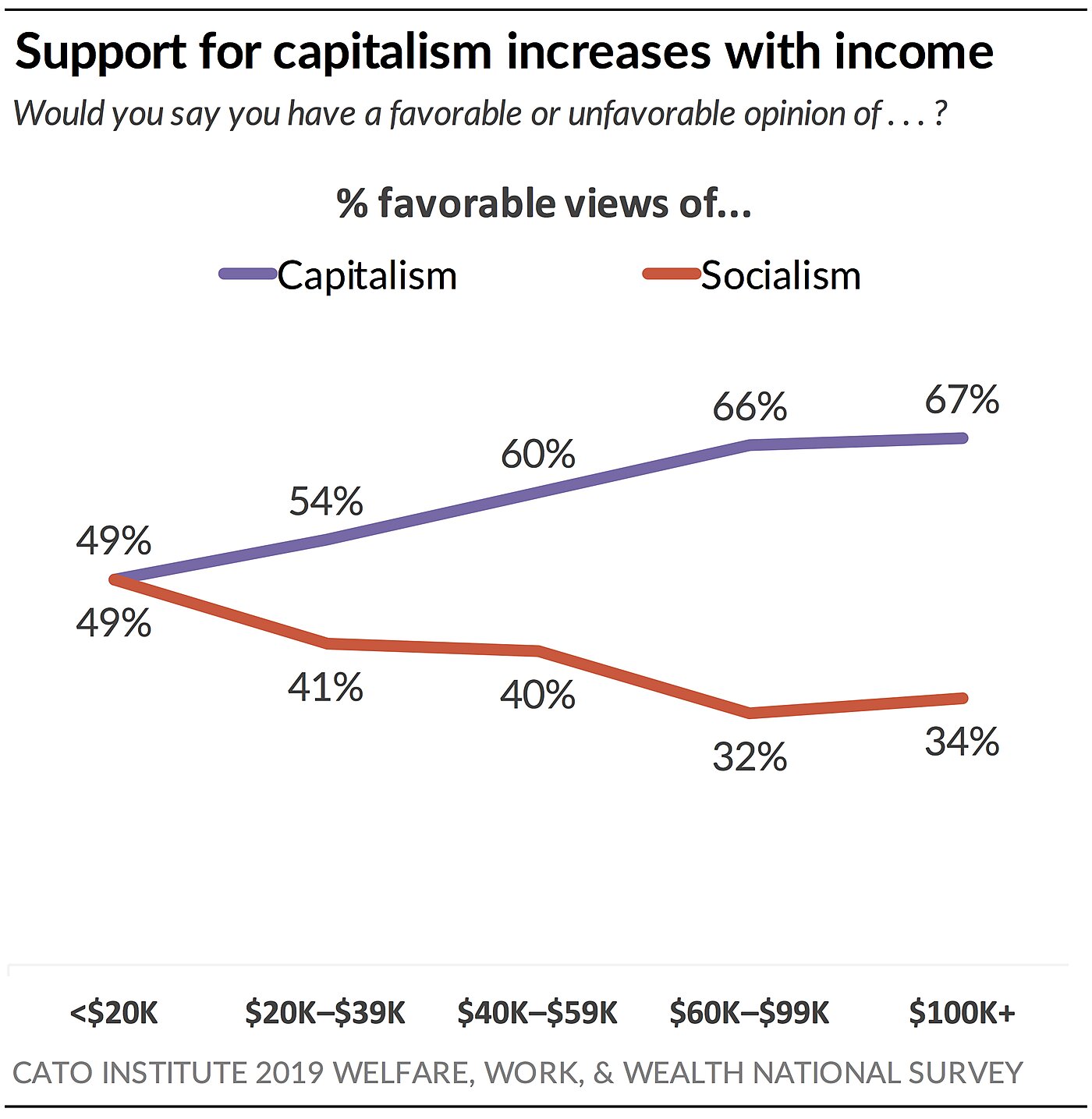The Cato 2019 Welfare, Work, and Wealth National Survey finds that Americans continue to have more favorable attitudes toward “capitalism” than “socialism.” However, groups vary significantly in their reactions to the terms. A majority (59%) of Americans have favorable views of the word “capitalism,” while 39% have an unfavorable view of it. In reverse, 39% of Americans have a favorable view of the word “socialism,” while 59% view socialism negatively.
Full survey results and report found here.
Democrats Feel More Favorable toward Socialism Than Capitalism
Democrats stand out with a majority (64%) who have a favorable view of socialism, while less than half (45%) have a favorable view of capitalism. Instead, a majority of Democrats (54%) have a negative view of capitalism.
In contrast, majorities of Republicans and independents have favorable views of capitalism and unfavorable views of socialism. But Republicans are considerably more favorable toward capitalism than independents by a margin of 77% to 52% and more unfavorable toward socialism, 85% vs. 58%.
Who Likes Capitalism; Who Likes Socialism?
African Americans, younger people, and lower-income Americans are most suspicious of capitalism and sympathetic to socialism.
Race Nearly two-thirds (62%) of African Americans have a favorable view of socialism, compared to about a third of Hispanic (36%), White (36%), and Asian Americans (33%). Instead, two-thirds of Hispanics (60%), Whites (63%), and Asians (64%) have negative views of socialism. African Americans are also less favorable toward capitalism. A majority (55%) of Black Americans have an unfavorable view while 40% have a favorable view. In contrast, majorities of White (64%), Asian (60%), and Latino (52%) Americans have a positive view of capitalism.
Income Lower-income Americans are ambivalent in their feelings toward socialism and capitalism. Equal shares of Americans earning less than $20,000 a year have a favorable view of capitalism (49%) and socialism (49%). However, once annual incomes reach $20,000 to $40,000, Americans show a clear preference for capitalism (54% favorable) over socialism (41% favorable). Two-thirds (66%) of Americans with incomes above $60,000 a year have positive reactions to the word “capitalism,” while half that (33%) have positive views of socialism.
Age Younger Americans are also divided in their feelings toward capitalism and socialism. Among those under 30, half (50%) have favorable views of socialism and about half (49%) have favorable views of capitalism. However, Americans over age 30 express a preference for capitalism over socialism. Support for capitalism increases to 58% among those 45–54, to 65% among those 55–64, and to 76% among those 65 and over.[1]
Support for capitalism doesn’t increase among Americans 30–44, but rather, support for socialism declines to 43%. Support for socialism drops further to 33% among those over 45.
It’s unclear if support for capitalism rises and socialism declines with age because people are changing their minds or because today’s younger cohort is permanently more skeptical of capitalism. Given that Americans 30 to 44 years old reached adulthood in the Great Recession era, it’s plausible they may remain distrustful of capitalism going forward.
Read more of the survey report here.
The Cato Institute 2019 Welfare, Work, and Wealth Survey was designed and conducted by the Cato Institute in collaboration with YouGov. YouGov collected responses online March 5 to 8, 2019 from a representative national sample of 1,700 Americans 18 years of age and older. The margin of error for the survey is +/- 2.2 percentage points at the 95% level of confidence.
[1]These age differences cannot be explained by age groups’ different average income levels. Even while holding income levels constant, older Americans are more favorable than younger Americans toward capitalism and more unfavorable toward socialism.






